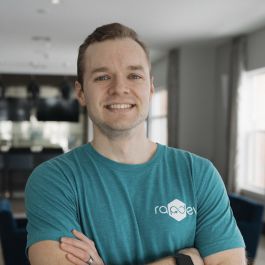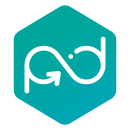Whether your preferred learning style is visual, auditory, or reading and writing, every person has a unique way they learn best.
To see how engineers in the tech industry approach continuous learning, Built In spoke with two Boston tech professionals about what works best for them.
For Logan Rohloff, tech lead at RapDev, the way he gathers new information is often through conversation.
“The primary resource I use to keep my skills sharp is through community interaction,” Rohloff said. “Whether I have known the person for a decade or never met them in my life, I find that just general conversation with other engineers is a great way to keep skills sharp.”
For Jacob Garcia, technical lead at BigTime Software, it often starts with familiarizing himself with resources like documentation.
“Documentation is my go-to starting point,” Garcia said. “It’s often underrated, but it’s packed with examples that give a solid understanding of what a tool can do.”
Once Garcia has some building blocks of an idea in front of him, it’s getting hands-on with a concept that really cements it in his mind.
“The key to prototyping is knowing when to throw it away,” Garcia added. “The first few iterations aren’t meant to last; they’re for testing ideas, learning and refining before moving forward.”
BigTime Software is a private equity-funded company with offices in Chicago, Phoenix, Boston and Poland committed to helping clients run their professional services firms more efficiently.
Give us a snapshot of what you do to stay on top of your engineering knowledge and skills.
The best way for me to learn is by doing. I find that actively engaging with new concepts helps solidify my understanding, and I often do this by reading documentation. When learning a new tool I go straight to the docs.
When challenges arise, I take them on, knowing that anything I build while experimenting isn’t ready for actual use. So, I iterate multiple times, focusing on learning the technology, testing different approaches, and gaining experience with the tools and environment rather than aiming for perfection on the first try. Tech moves fast, making it impossible to keep up with everything. Instead of subscribing to every product newsletter or blog, I follow a few trusted professionals who curate key insights.
Learning is built into my job — each challenge is an opportunity to build new skills, so I dedicate time weekly to experiment and prototype, whether solving a problem or preparing for future needs. In tech, learning never stops, it’s about staying adaptable and knowing where to find the right information.
What are your go-to resources for keeping your engineering skills sharp?
Documentation is my go-to starting point. It’s often underrated, but it’s packed with examples that give a solid understanding of what a tool can do. For example, when using a newer tool, like Terraform, React or Fast Endpoints, I go straight to the docs. It sounds tedious, but modern documentation is usually well-structured and easy to follow, often with examples and a solid quick-start section. I also don’t read them to memorize everything, just to know a solution exists. That way if I run into a problem later on, I have an idea of where to find the solution.
I also utilize trusted industry experts, as opposed to following every product newsletter and blog, because they help me stay updated without getting overwhelmed. For databases, I follow Brent Ozar; for .NET, Steve Ardalis. I pay attention to what they’re paying attention to. It’s kind of my first line of defense against getting overwhelmed by all the new products and trends.
My third go-to is prototyping — it’s where I pick up most of my skills. The key to prototyping is knowing when to throw it away. The first few iterations aren’t meant to last; they’re for testing ideas, learning and refining before moving forward.
What does the learning culture look like at your company or on your engineering team?
I’m really grateful for my current manager. Like I mentioned earlier, I spend about one day a week experimenting, prototyping and learning. While that’s often tied to some company initiative, sometimes it’s just about exploring new tools.
For example, if I know I’m going to be working with infrastructure as code soon, I might spend time building something with Terraform or testing out Terragrunt, even if it isn’t directly related to a current project. That makes me a stronger engineer, and when company problems come up down the line, I’ve got more tools in my belt to solve them.
The company also does a good job of supporting upskilling. There isn’t a strict process for it, but if there’s something I want to try — whether it’s a premium AI model for Cursor, a new design library, or a Pluralsight course — it’s handled on a case-by-case basis. And I’ve never seen someone ask for a resource and not get what they need, either directly or through a similar option.
RapDev helps customers deploy code faster as they upscale their operations.
Give us a snapshot of what you do to stay on top of your engineering knowledge and skills.
The core way I stay on top of my engineering knowledge and skills is by constantly trying to put myself in a position to learn something new, and I find it easiest to learn when I have a use case for whatever tool or feature that piques my interest. Whether it’s labbing up scenarios for my customers, trying a new tool or feature I read about, or stepping in to help my colleagues even if I don’t know the answer immediately, I find it really important to actively seek learning opportunities whenever possible. It can be really easy to fall into the trap of getting comfortable and sticking to what you know, and I firmly believe that exceptional engineers have an almost uncontrollable curiosity about them.
I try my hardest to keep track of new trends and take time out of my week to build new skills. Technology is moving at an unfathomable pace, and I feel that if I don’t take at least a couple hours a week to tinker or read about some of the latest innovations happening in my specific area of engineering, the easier it becomes to get overwhelmed and inevitably fall behind.
What are your go-to resources for keeping your engineering skills sharp?
Other than scouring new release feeds or periodically reading change logs or release notes for the technologies I use in my day-to-day, the primary resource I use to keep my skills sharp is through community interaction. Whether I have known the person for a decade or never met them in my life, I find that just general conversation with other engineers is a great way to keep skills sharp.
Sometimes it’s a complete stranger looking for a little help with a minor issue they have, to which I might walk myself through the scenario and tinker until I can at least provide some sort of input. Other times it’s getting inspiration from my current or former colleagues by just catching up and hearing about what they are spending their time on or learning about. Even if I don’t become an expert in the topics in either scenario, I find that having even general knowledge about different tools, languages, etc. in the industry can be really beneficial in becoming a more well-rounded engineer.
What does the learning culture look like at your company or on your engineering team?
The learning culture at RapDev is amazing, and I haven’t seen anything like it. The flexibility and empowerment we get to be creative and produce solid engineering is second to none. I have never been told that I couldn’t try something new or in a different way, and I firmly believe it’s because the organization values new ideas. Even if it doesn’t work out the way we’d hope, I know RapDev believes that testing different methods or technologies in order to solve problems helps contribute to an overall more well-rounded engineering team. We celebrate the wins and learn from the losses, and we are invited to share the results with our fellow engineers to help them learn as well.
When we build something new or cool for one of our customers, we have a dedicated slot every week to share it with the entire company. I think even though these sessions aren’t necessarily directly relevant to the day-to-day of everyone at the company, encouraging knowledge sharing just further reinforces a strong learning culture within the engineering organization.









